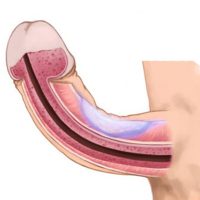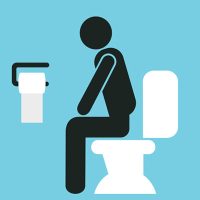Men's Intimate Problems
Intimate health problems affect a significant number of men during their lives, yet many find it difficult to talk about them or seek help. This comprehensive guide helps to understand the most common problems and their treatment options.
Erectile Dysfunction and Its Causes
Erectile dysfunction, or ED, occurs when you are unable to achieve or maintain an adequate erection for sexual intercourse. It is an extremely common issue that affects more men as they age. Both physical and psychological factors can underlie erectile dysfunction. Physical causes may include vascular diseases, diabetes, high blood pressure, or hormonal problems. Psychological causes include stress, anxiety, depression, or relationship difficulties.
The first step in treating erectile dysfunction is always a thorough examination. After detailed medical history taking and physical examination, a urologist specialist may order various laboratory tests. Treatment depends on the underlying cause. Oral medications that improve blood flow to the penis are commonly used but can have numerous risks and side effects. These can be avoided with the help of vacuum penis pumps, which actually provide more reliable results than medications.
Premature Ejaculation and Its Treatment
Premature ejaculation is one of the most common sexual problems in which ejaculation occurs earlier than desired, often before or shortly after penetration. This can cause significant stress for both the man and his partner. The problem can be congenital or acquired and may have psychological or organic causes.
Several methods are available for treating premature ejaculation. Behavioral therapy techniques can help increase control. There are topical anesthetic creams and sprays that can delay ejaculation.
A simple but effective device that does not limit sexual pleasure is the penis ring.
Sexual Problems After Prostate Surgery
Sexual problems, especially erectile dysfunction, often occur after prostate removal surgery. This happens because nerves and blood vessels responsible for erection can be damaged during surgery. It is important to know that function can partially or fully recover, but this can take one to two years.
Early initiation is key in rehabilitation. A penile rehabilitation program can start a few weeks after surgery and may include medication and the use of a vacuum penis pump. The goal is to ensure proper oxygen supply to penile tissues and to promote spontaneous erections. The Rehabi PVT device is specifically designed for this problem.
Urinary and Fecal Incontinence
Urinary incontinence, or involuntary leakage of urine, is also common, especially after prostate surgery or in older age. The severity can vary from mild dribbling to complete loss of control.
Fecal incontinence is less common but may also occur after various surgeries or in neurological conditions.
The first step in treating incontinence is strengthening the pelvic floor muscles. These exercises can be learned and performed regularly with the help of a physiotherapist. However, intimate exercises are challenging because few people can sense and actively contract their pelvic floor muscles, resulting in low effectiveness of the exercises even after months.
Functional stimulators (incontinence stimulators) use electrical impulses to "exercise" the pelvic floor muscles. Significant results can be achieved in about 3 months with daily use.
Hormonal Problems and Testosterone Deficiency
With aging, the natural decline in testosterone levels can cause several problems such as decreased libido, fatigue, loss of muscle mass, or mood swings. Testosterone deficiency is diagnosed through blood tests and is treatable with appropriate hormone replacement therapy.
However, thorough examinations are necessary before starting hormone therapy since it is not recommended in all cases. Treatment can be administered via gels, patches, or injections. Regular follow-up examinations are required to adjust hormone levels properly and monitor possible side effects.
Psychological Support and Couples Therapy
Sexual problems can significantly impact self-esteem and relationships. Therefore, alongside physical treatments, psychological support is often needed. Couples therapy can help improve communication and develop new sexual habits.
Psychotherapy can help address anxieties and fears that hinder the restoration of sexual function. Involving the partner in therapy can enhance treatment success and strengthen the relationship.
Importance of Lifestyle Changes
Sexual health is closely linked to general health. Regular exercise, healthy nutrition, adequate sleep, and stress management all contribute to preventing or treating sexual problems.
Quitting smoking, reducing alcohol consumption, and losing excess weight can positively affect sexual function. Maintaining vascular health is crucial for preserving adequate erectile ability.
Prevention and Regular Screening
Regular urological screenings play an important role in prevention and early detection. After age 40, annual prostate screenings are recommended, especially if there is a family history of prostate cancer.
During screenings, the doctor examines the prostate via digital rectal examination, ultrasound, and blood tests. There is also the opportunity to discuss sexual problems, which can help early intervention and prevent more serious issues.
Men's intimate health problems are now well treatable if medical assistance is sought in time. Modern medicine offers numerous solutions, and treatment success is continually improving with new technologies and methods.
Remember, these problems are very common and there is no need to be ashamed. Professionals handle concerns discreetly and professionally and help find the most appropriate solution for you. The success of treatment largely depends on how soon you seek help after the problem arises, so it is important not to delay seeing a doctor.






